WarGames is a 1983 American Cold War science fiction film written by Lawrence Lasker and Walter F. Parkes and directed by John Badham. The film stars Matthew Broderick, Dabney Coleman, John Wood, and Ally Sheedy. The film follows David Lightman (Broderick), a young hacker who unwittingly accesses WOPR (War Operation Plan Response), a United States military supercomputer originally programmed to predict possible outcomes of nuclear war. Lightman gets WOPR to run a nuclear war simulation, believing it to be a computer game. The computer, now tied into the nuclear weapons control system and unable to tell the difference between simulation and reality, attempts to start World War III.
| WarGames | |
|---|---|
Theatrical release poster | |
| Directed by | John Badham |
| Produced by |
|
| Written by |
|
| Starring |
|
| Music by | Arthur B. Rubinstein |
| Cinematography | William A. Fraker |
| Edited by | Tom Rolf |
Production company | United Artists Sherwood Productions |
| Distributed by | MGM/UA Entertainment Company |
Release date |
|
Running time | 114 minutes |
| Country | United States |
| Language | English |
| Budget | $12 million |
| Box office | $79.6 million |
The film was a box office success, costing $12 million and grossing $79 million after five months in the United States and Canada. The film was nominated for three Academy Awards. A sequel, WarGames: The Dead Code, was released direct to DVD in 2008.
Screenplay
During a surprise drill of a nuclear attack, many United States Air Force Strategic Missile Wing controllers prove unwilling to turn the key required to launch a missile strike. Such refusals convince John McKittrick and other systems engineers at NORAD that missile launch control centers must be automated, without human intervention. Control is given to a NORAD supercomputer, WOPR (War Operation Plan Response), programmed to continuously run war simulations and learn over time.
David Lightman, a bright but unmotivated Seattle high school student and hacker, uses his computer to break into the school district's computer system and change his grades. He does the same for his friend and classmate Jennifer Mack. Later, while war dialing numbers in Sunnyvale, California to find a computer game company, he connects with a system that does not identify itself. Asking for games, he finds a list that starts with chess, checkers, backgammon, and poker, as well as titles like "Theaterwide Biotoxic and Chemical Warfare" and "Global Thermonuclear War", but cannot proceed further. Two hacker friends explain the concept of a backdoor password and suggest tracking down the Falken referenced in "Falken's Maze," the first game listed. David discovers that Stephen Falken was an early artificial intelligence researcher, and guesses correctly that his dead son's name, Joshua, is the password.
David does not know that the Sunnyvale phone number connects to WOPR at the Cheyenne Mountain Complex. He starts a game of Global Thermonuclear War, playing as the Soviet Union. The computer starts a simulation that briefly convinces the military personnel at NORAD that actual Soviet nuclear missiles are inbound. While they defuse the situation, WOPR nonetheless continues the simulation to trigger the scenario and win the game, as it does not understand the difference between reality and simulation. It continuously feeds false data such as Soviet bomber incursions and submarine deployments to NORAD, pushing them into raising the DEFCON level and toward a retaliation that will start World War III.
David learns the true nature of his actions from a news broadcast, and FBI agents arrest him and take him to NORAD. He realizes that WOPR is behind the NORAD alerts, but because he fails to convince McKittrick, he faces espionage charges. David escapes NORAD by joining a tourist group and, with Jennifer's help, travels to the Oregon island where Falken lives. David and Jennifer find that Falken has become despondent and believes that nuclear war is inevitable, that it is as futile as a game of tic-tac-toe between two experienced players. The teenagers convince Falken that he should return to NORAD to stop WOPR.
The computer stages a massive Soviet first strike with hundreds of missiles, submarines, and bombers. Believing the attack to be genuine, NORAD prepares to retaliate. Falken, David, and Jennifer convince military officials to cancel the second strike and ride out the attack. WOPR tries to launch the missiles itself, however, using a brute-force attack to obtain the launch code. Without humans in the control centers as a safeguard, the computer will trigger a mass launch. All attempts fail to log in and order WOPR to cancel the countdown. Disconnecting the computer is discussed and dismissed, as a failsafe will launch all weapons if the computer is disabled.
Falken and David direct the computer to play tic-tac-toe against itself. This results in a long string of draws, forcing the computer to learn the concept of futility and no-win scenarios. WOPR obtains the missile code, but before launching, it cycles through all the nuclear war scenarios it has devised, finding they, too, all result in stalemates. Having discovered the concept of mutual assured destruction ("WINNER: NONE"), the computer tells Falken that it has concluded that nuclear war is "a strange game" in which "the only winning move is not to play." WOPR relinquishes control of NORAD and the missiles and offers to play "a nice game of chess."
- Matthew Broderick as David Lightman
- Dabney Coleman as Dr. John McKittrick
- John Wood as Dr. Stephen Falken and the voice of Joshua/WOPR
- Ally Sheedy as Jennifer Mack
- Barry Corbin as General Jack Beringer
- Juanin Clay as Pat Healy
- Dennis Lipscomb as Watson
- Joe Dorsey as Col. Joe Conley
- Michael Ensign as Beringer's assistant
- William Bogert as Mr. Lightman
- John Spencer as Capt. Jerry Lawson
- Michael Madsen as Lt. Steve Phelps
- Alan Blumenfeld as Mr. Liggett
- Maury Chaykin as Jim Sting
- Eddie Deezen as Malvin
- Art LaFleur as Guard (Sgt. Ginzberg)
- Stack Pierce as Airman
- Stephen Lee as Sgt. Schneider
- Jesse D. Goins as Sergeant (as Jesse Goins)
- James Ackerman as Joshua Falken
Development
Development on WarGames began in 1979, when writers Walter F. Parkes and Lawrence Lasker developed an idea for a script called The Genius, about "a dying scientist and the only person in the world who understands him – a rebellious kid who's too smart for his own good." Lasker was inspired by a television special presented by Peter Ustinov on several geniuses including Stephen Hawking. Lasker said, "I found the predicament Hawking was in fascinating – that he might one day figure out the unified field theory and not be able to tell anyone, because of his progressive ALS. So there was this idea that he'd need a successor. And who would that be? Maybe this kid, a juvenile delinquent whose problem was that nobody realized he was too smart for his environment." The concept of computers and hacking as part of the film was not yet present.
The Genius began its transformation into WarGames when Parkes and Lasker met Peter Schwartz from the Stanford Research Institute. "There was a new subculture of extremely bright kids developing into what would become known as hackers," said Schwartz. Schwartz made the connection between youth, computers, gaming, and the military. Parkes and Lasker also met with computer-security expert Willis Ware of RAND Corporation, who assured them that even a secure military computer might have remote access so users could work from home on weekends, encouraging the screenwriters to continue with the project.
Parkes and Lasker came up with several different military-themed plotlines prior to the final story. One version of the script had an early version of WOPR named "Uncle Ollie", or OLI (Omnipresent Laser Interceptor), a space-based defensive laser run by an intelligent program, but this idea was discarded because it was too speculative. Director John Badham coined the name "WOPR", feeling that the name of NORAD's SIOP (Single Integrated Operational Plan) was "boring, and told you nothing". The name "WOPR" played off the Whopper hamburger, and a general sense of something going "whop".
The WOPR computer as seen in the film was a prop created in Culver City, California, by members of the International Alliance of Theatrical Stage Employees Local 44. It was designed by production designer (credited as visual consultant) Geoffrey Kirkland based on some pictures he had of early tabulating machines, and metal furniture, consoles, and cabinets used particularly in the U.S. military in the 1940s and 50s. They were adapted in drawings and concepts by art director Angelo P. Graham. WOPR was operated by a crewmember sitting inside the computer, entering commands into an Apple II at the director's instruction. The prop was broken up for scrap after production was completed. A replica was built for a 2006 AT&T commercial.
David Lightman was modeled on David Scott Lewis, a hacking enthusiast Parkes and Lasker met. Falken was inspired by and named after Stephen Hawking, with the appearance of John Lennon, who was interested in the role, but was murdered in New York while the script was in development. General Beringer was based on General James V. Hartinger (USAF) the then-commander-in-chief of NORAD, who Parkes and Lasker met while visiting the base, and who, like Beringer, favored keeping humans in the decision loop.
Filming
Martin Brest was originally hired as director but was fired after 12 days of shooting because of a disagreement with the producers, and replaced with John Badham. Several of the scenes shot by Brest remain in the final film. Badham said that Brest had "taken a somewhat dark approach to the story and the way it was shot. It was like were doing some Nazi undercover thing. So it was my job to make it seem like they were having fun, and that it was exciting." According to Badham, Broderick and Sheedy were "stiff as boards" when they came onto the sound stage, having both Brest's dark vision and the idea that they would soon be fired. Badham did 12 to 14 takes of the first shot to loosen the actors up. At one point, Badham decided to have a race with the two actors around the sound stage with the one who came last having to sing a song to the crew. Badham lost and sang "The Happy Wanderer", the silliest song he could think of.
Tom Mankiewicz says he wrote some additional scenes during shooting that were used.
WarGames did well at the North American box office, earning $79,567,667, the fifth-highest of 1983. The film was screened out of competition at the 1983 Cannes Film Festival.
Critical response
The film received critical acclaim. Film critic Roger Ebert gave the film four out of four stars, calling it "an amazingly entertaining thriller" and "one of the best films so far this year", with a "wonderful" ending. Softline praised the film as being "completely original"; unlike other computer-related films like Tron that "could (and do) exist in substantially the same form with some other plot", WarGames "could not exist if the microcomputer did not exist ... It takes the micro and telecommunications as a given—part of the middle-class American landscape". The magazine praised the film as "Very funny, excruciatingly suspenseful, and endlessly inventive, this movie is right on the mark; authentic even when highly improbable". Computer Gaming World stated that "Wargames is plausible enough to intrigue and terrifying enough to excite ... makes one think, as well as feel, all the way", raised several moral questions about technology and society, and recommended the film to "Computer hobbyists of all kinds". Leonard Maltin gave it a mixed review calling it "Fail Safe for the Pac-Man Generation" and "Entertaining to a point". He concluded, "Incidentally, it's easy to see why this was so popular with kids : most of the adults in the film are boobs."
On review aggregator website Rotten Tomatoes, the film received an approval rating of 93% based on 41 reviews, with an average rating of 7.6/10. The site's critical consensus reads, "Part delightfully tense techno-thriller, part refreshingly unpatronizing teen drama, WarGames is one of the more inventive—and genuinely suspenseful—Cold War movies of the 1980s." On Metacritic, the film has a weighted average score of 77 out of 100 based on 15 critics, indicating "generally favorable reviews
Watch movie Wargames online on Amazon
Watch movie Wargames online
Watch The Movie On PrimeDiljale- The Burning Heart Full HD Movie Download

99.9 FM-Nothing is 100% Full HD Movie Download

Kisna Full HD Movie Download

Siva Full HD Movie Download

Raja Babu (Telugu) Full HD Movie Download
.jpg)
Pataal Bhairavi Full HD Movie Download
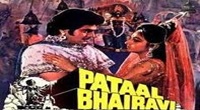
Pet Pyar Aur Paap Full HD Movie Download

Sanam Harjai Full HD Movie Download

Rahul Full HD Movie Download

Bheja Fry 2 Full HD Movie Download

Baazi (1968) Full HD Movie Download
.jpg)
Tumsa Nahin Dekha (1957) Full HD Movie Download
.jpg)
The Great Gatsby Full HD Movie Download

Khudai Full HD Movie Download

Oceans Thirteen Full HD Movie Download

The Matrix Full HD Movie Download
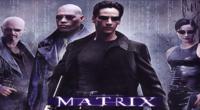
Maro Seetha Katha Full HD Movie Download
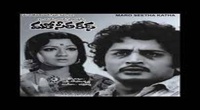
Malli Inkokkasari Full HD Movie Download
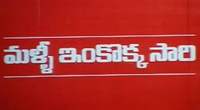
Kalaignan Full HD Movie Download

Neal n Nikki Full HD Movie Download

Rab Ne Bana Di Jodi Full HD Movie Download

Download latest Movie from bollywood
- 1> baaghi 3
- 2> THE SKY IS PINK MOVIE FULL STORY AND REVIEW
- 3> Luka Chuppi
- 4> TO ALL THE BOYS I’VE LOVED BEFORE
- 5> Kabir Singh
- 6> Street Dancer 3D
- 7> Simmba
- 8> Gone Girl
- 9> The Girl Who Lived
- 10> Ludo
- 11> DILWALE DULHANIA LE JAYENGE
- 12> GUILTY
- 13> The Godfather
- 14> Adventures of Rusty
- 15> Sooryavanshi
- 16> Satyameva Jayate 2
- 17> Thappad
- 18> Bhool Bhulaiyaa 2
- 19> KGFChapter 2
- 20> Mardaani 2
- 21> Pinjar
- 22> Shivaji maharaj
- 23> Ek Villian 2
- 24> Hungama 2
- 25> Divergent
- 26> Mumbai Saga
- 27> The Internship
- 28> HIT (telugu)
- 29> Panga
- 30> The perfect date
- 31> 16 December
- 32> Gopala Gopala (Telugu)
- 33> Brahmastra
- 34> Gangubai Kathiawadi
- 35> Manmadhudu
- 36> Nenu local
- 37> Mahanati
- 38> Shatamanam bavathi
- 39> Lagaan
- 40> After
- 41> MOM
- 42> Shamshera
- 43> Raguvaran BTech
- 44> Khakee
- 45> The villain
- 46> OM
- 47> Mr. perfect
- 48> Bueatifull mind
- 49> Hichki
- 50> Gabbar Singh
- 51> Jogi
- 52> Before Sunrise
- 53> Before Sunset
- 54> Before Midnight
- 55> The Big Bull
- 56> Top Gun: Maverick
- 57> The Purge
- 58> The Sky is Pink
- 59> Laxmmi Bomb
- 60> Sadak 2
- 61> Sufna
- 62> Prithviraj
- 63> PK
- 64> Coolie No 1(2020)
- 65> Black Widow
- 66> Dear Zindagi
- 67> Dil Bechara
- 68> PHIR HERA PHERI
- 69> WAR
- 70> Dostana
- 71> RRR: Roudram Ranam Rudhiram
- 72> Maidan
- 73> Dabbang 3
- 74> Chhalaang
- 75> life as we know it
- 76> SherShaah
- 77> Sandeep Aur Pinky Faraar
- 78> Event Horizon
- 79> 83
- 80> Radhe: Your Most Wanted Bhai
- 81> Gunjan Saxena: The Kargil Girl
- 82> Mr India
- 83> Vivah
- 84> Anokha Bandhan
- 85> Ghost
- 86> Bhoot: Part One - The Haunted Ship
- 87> Haseen Dilruba
- 88> Laal Singh Chaddha
- 89> Qismat
- 90> Rajput
- 91> Drive
- 92> Dil Chahta Hai
- 93> Dil Ki Baazi
- 94> Dil Ka Rishta
- 95> Teesri Manzil
- 96> Dil
- 97> Love Aaj Kal
- 98> Khaali Peeli
- 99> Bunty Aur Babli 2
- 100> Atrangi Re
- 101> Gulabo Sitabo
- 102> Jodi
- 103> Suraj Pe Mangal Bhari
- 104> Deewana
- 105> Attack
- 106> Sardar Udham Singh
- 107> Toofan
- 108> THE LOVEBIRDS
- 109> Jersey
- 110> Ginny Weds Sunny
- 111> Thalaivi
- 112> Shiddat
- 113> Angels vs Zombies
- 114> Koi Mil Gya
- 115> Thank God
- 116> Bhuj: The Pride of India
- 117> Hum Aapke Hain Kaun
- 118> The Platform
- 119> Bird Box
- 120> Roohi Afzana
- 121> Torbaaz
- 122> Nikamma
- 123> World War Z
- 124> Extraction
- 125> Train to Busan
- 126> Life of Pi
- 127> SHAADI MEIN JROOR AANA
- 128> Himmat Aur Mehnat
- 129> To All The Boys: P.S. I Still Love You
- 130> Mimi
- 131> Good Newwz
- 132> Shubh Mangal Zyada Saavdhan
- 133> Raabta
- 134> Harry Potter and the Philosopher's Stone
- 135> Harry Potter and the Chamber of Secrets
- 136> Chhapaak
- 137> War of the Worlds
- 138> Harry Potter and the Prisoner of Azkaban
- 139> Harry Potter and the Goblet of Fire
- 140> MURDER MYSTERY
- 141> Shakuntala Devi
- 142> Bachchan Pandey
- 143> Jayeshbhai Jordar
- 144> Sheer Qorma
- 145> Saina
- 146> 'O' Pushpa I hate tears
- 147> Kedarnath
- 148> MS Dhoni The Untold Story
- 149> Chhichhore
- 150> Badhaai Ho
- 151> Unstoppable
- 152> Oz the Great And Powerful
- 153> The Girl on the Train
- 154> Haathi Mere Saathi 2020
- 155> The Conjuring: The Devil Made Me Do It
- 156> Gandhi Se Pehle Gandhi
- 157> The Song of Scorpions
- 158> Srimanthudu
- 159> Hello Guru Prema Kosame
- 160> Beauty and The Beast
- 161> Black Panther
- 162> Charlie and the Chocolate Factory
- 163> Bole Chudiyan
- 164> Fidaa
- 165> Duvvada Jagannadham
- 166> Bruce Lee: The Fighter
- 167> Hyper
- 168> Yaara
- 169> Red (2020)
- 170> Shivam
- 171> That Is Mahalakshmi
- 172> Nishabdham
- 173> Aashram 2020 web series
- 174> Laxmii
- 175> Mismatched
- 176> STUDENT OF THE YEAR 2
- 177> NAIL POLISH
- 178> Ramprasad Ki Tehrvi
- 179> KAAGAZ
- 180> 12 o Clock
- 181> The Power
- 182> bolo hau
- 183> Tribhanga
- 184> JAMUN
- 185> Madam Chief Minister
- 186> Maasaab
- 187> Aadhaar
- 188> Tanhaji
- 189> Bhaagi 3
- 190> Bhootnath
- 191> MALANG
- 192> Jai Mummy Di
- 193> Haathi Mere Saathi 2021
- 194> Shakeela
- 195> Unpaused
- 196> Annayya
- 197> Vamsoddharakudu
- 198> Mrugaraju
- 199> Narasimha Naidu
- 200> Sankranti
- 201> Manasu Maata Vinadhu
- 202> Anjaane
- 203> Apaharan
- 204> Bachke Rehna Re Baba
- 205> Bewafaa
- 206> Roohi
- 207> Radhe
- 208> Zindagi Khoobsoorat Hai
- 209> Yeh Mohabbat Hai
- 210> Yeh Kya Ho Raha Hai?
- 211> The Tomorrow War
- 212> DehradunDiary
- 213> Meri Shaadi Karaoo
- 214> Matruu Ki Bijlee Ka Mandola
- 215> No One Killed Jesica
- 216> Aag Ka Goola
- 217> Eight Million Dollars
- 218> Three Hundred
- 219> Cats and Dog
- 220> Decoy
- 221> Gold Rush
- 222> You Have Got Mail
- 223> Final Destination three
- 224> Tofan
- 225> Jungle
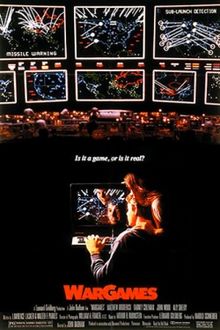 Story of movie Wargames :
Story of movie Wargames : 